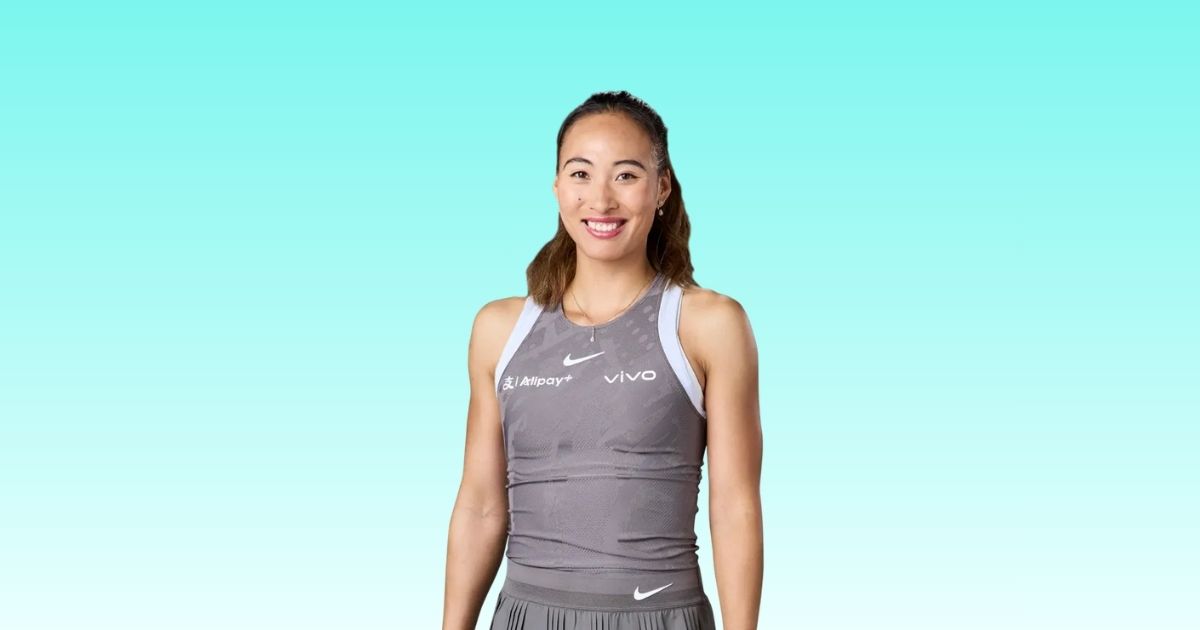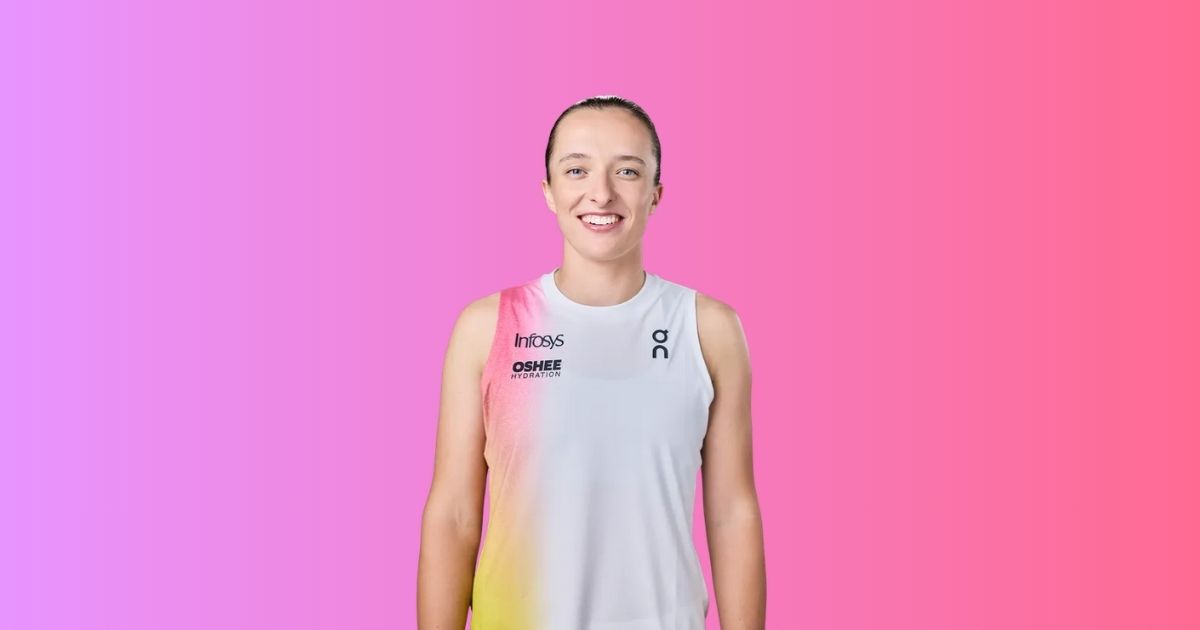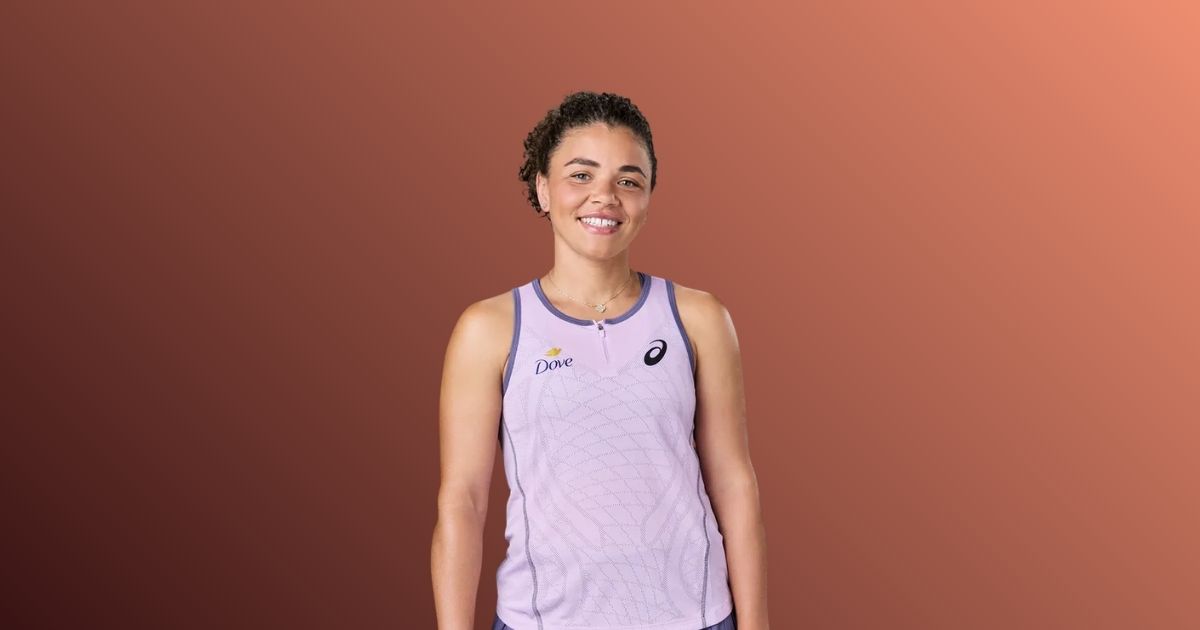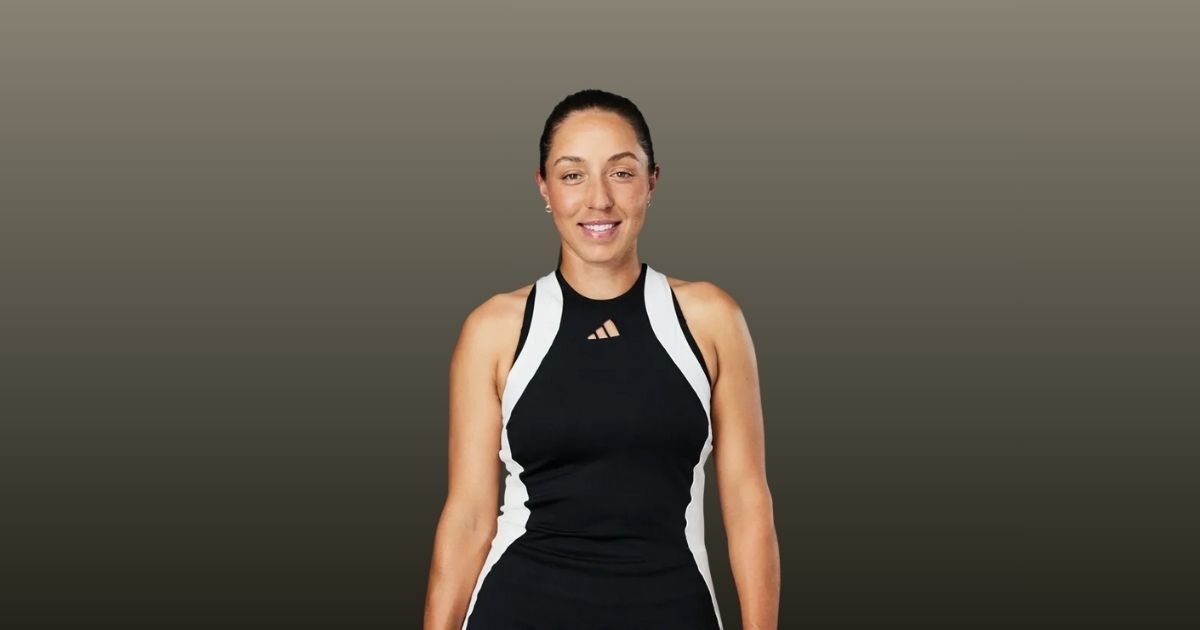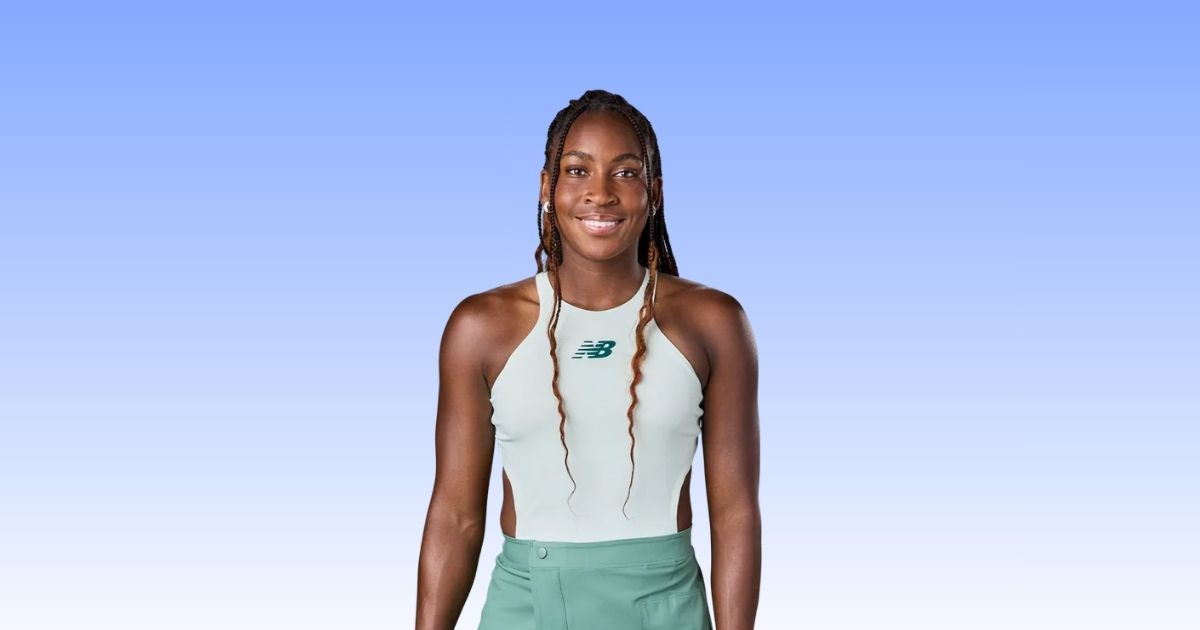Table of Contents
Qinwen Zheng: China’s Next Tennis Superstar
Qinwen Zheng is one of the most promising young talents in women’s tennis. Her heavy groundstrokes, athletic power, and fearless mentality have quickly turned her into a major contender on the WTA Tour. Zheng represents China in the new wave of Asian tennis stars following the success of players like Li Na — but she is writing her own story with a bold and aggressive style.
She is often compared with strong and explosive players such as Aryna Sabalenka and rising teenagers like Mirra Andreeva proving she belongs among the best of the new generation. Zheng has shown rapid improvement while adapting her game across all surfaces, becoming a dangerous opponent at every tournament.
This qinwen zheng biography explores her early life, career development, playing style, major milestones, and competitive mindset — a journey that highlights the growth of Asian tennis globally.
Early Life and Background
Birth and Beginning:
- Born in Hubei Province, China, on August 8, 2002
- Wuhan, a big city known for its sports infrastructure, was where I grew up.
- Her parents got her into tennis when she was seven years old.
- Height : 5’10” (178 cm), plays right-handed and has a two-handed backhand
Family Support System:
- Parents saw her athletic potential early on and encouraged her to play tennis.
- Her family made a lot of sacrifices to pay for her training and travel costs.
- Moved to several training centers all across China to get better coaching
- Kept up good grades while also improving at tennis
Junior Development:
- She trained at many tennis academies in China when she was young.
- From a young age, she showed incredible power and court coverage. She developed an aggressive baseline approach that would become her trademark style.
- Took part in junior tournaments all over Asia and the world
Problems at the beginning:
- Had trouble with language when competing in international junior events
- Had to get used to playing on different surfaces and in different weather outside of China
- Balanced strict training schedules with schoolwork and other duties
- She got over her initial problems with being consistent while still being assertive.
Building a strong base:
- Worked with coaches from the Chinese tennis federation who stressed the importance of basic skills.
- Through special training programs, they got stronger and could last longer.
- Built mental strength through experiences on the junior circuit
- Learned how to deal with stressful situations that would help her career.
Career Overview and Playing Style
Playing Style:
- An aggressive baseliner who controls points with force and court position
- Prefers hard courts where her flat groundstrokes can achieve maximum efficacy
- Makes steep angles and strong serves by using height to their advantage
- Combines brute strength with better tactical awareness
Forehand Weapon:
- A powerful forehand that can hit winners even while you’re on defense
- Utilizes contemporary swing mechanics with considerable topspin when needed. Can flatten out shots for penetrating winners down the line or crosscourt
- One of the main ways she takes charge of rallies
Foundation for the Backhand:
- A strong two-handed backhand keeps you steady over long exchanges.
- Can change the pace of the game when under pressure
- Getting better at making angles and depth changes
- Reliable side for maintaining rallies and building up forehand possibilities
Serving Game:
- Uses height and reach to make good angles and placement.
- First serve focuses on power and placement to start points aggressively
- Second serve emphasizes consistency while maintaining a reasonable pace
- Adding diversity to her serving patterns by improving her kick serve
Return Options:
- Steps into the court to take returns as soon as they can
- Quickly uses her power to stop her opponent’s serves
- Can handle pace effectively owing to good skills and preparation
- Getting better at anticipating and positioning in return games
- Court Movement : Even though it sometimes looks like it has heavy feet, it covers the court well.
- Uses a lengthy reach to grab to balls that might go past other players
- Better side-to-side movement and recovery after wide shots
- Learning how to use placement to cut down on the need to move
Developing a Net Game:
- A selective approach to net play, usually on short balls or approach shots
- Strong volleys when she comes forward
- Still getting better at playing in transition
- Uses height advantage well at the net when the chance comes up
Major Career Milestones
Professional Breakthrough:
- At age 17 years old, she made her WTA main draw debut in 2019.
- First WTA title came at Palermo Open in 2023, defeating the top-seeded players
- Made it into the WTA Top 50 after getting good results all through 2022 and 2023
- Got to the highest rating of their career by consistently doing well, not by having one big win.
Grand Slam Progress:
- Played in the main draw of all four Grand Slam events
- Made it to the fourth round of the Australian Open , showing skill on hard courts
- Even though grass isn’t their favorite surface, they did well at Wimbledon.
- Strong showings at the US Open, where the circumstances are good for her power game
WTA Tour Success:
- Multiple WTA 250-level finals appearances, getting better at playing in huge games
- Winning against players ranked in the top 20 shows that you can compete at the greatest level.
- Consistent wins in the first and second rounds add up to ranking points.
- Prize money revenues show that the professional tour is getting more successful.
Asian Tennis Leadership:
- At different times in her career, she was the highest-ranked Chinese player.
- Played for China in the Billie Jean King Cup
- Inspired a newer generation of Chinese tennis players with her success
- Helped make Asian tennis more well-known around the world
Achievements in the Rankings:
- Steady rise through the WTA rankings with no serious problems
- Got into the Top 30 by doing well in tournaments all the time
- Year-end rankings demonstrate an improving trajectory season after season. Points accrual through long runs rather than early round upsets
Rivalries on the WTA Tour
Qinwen Zheng continues to face some of the most exciting competitors on the WTA Tour, creating matchups that fans look forward to throughout the season. These rivals push her to refine her power-based style and deliver some of her biggest performances.
- Madison Keys — Their matchups often feature short, explosive rallies and high-risk shot-making from both sides.
- Paula Badosa — Physical intensity and hard-court battles have made this a growing head-to-head storyline.
- Mirra Andreeva — Both represent the next wave of WTA stars, and each match highlights fast learning curves and sharp tactics.
- Diana Shnaider — An increasingly compelling rivalry between two fearless young hitters.
- Victoria Mboko — A future-looking matchup that showcases the new talent emerging from Asia and North America.
- Daria Kasatkina — Zheng’s raw power vs. Kasatkina’s crafty point construction forms a fascinating style contrast.
- Jasmine Paolini — Their encounters show Zheng learning to break down highly consistent opponents.
- Karolina Muchova — When healthy, Muchova tests Zheng’s transition skills and touch at the net.
Breakthrough Moments
First WTA Title Victory:
- Palermo Open win in 2023 announced her emergence as a legitimate tour-level player.
- Defeated multiple seeded opponents during the tournament run
- Kept calm in the final, even though it was their first chance to win a title.
- Victory offered a confidence boost for subsequent tournaments
Grand Slam Fourth Round:
- Her fourth-round match at the Australian Open got her noticed in the tennis industry.
- Defeated established players with stunning power show
- Dealt with the stress of playing in front of big crowds in tennis
- Showed that her game might work in a best-of-three format in majors
Wins for the Best Player:
- Upset wins over opponents in the Top 10 confirmed her risae to fame.
- Showed ability to raise the level in the biggest moments
- Showed that her power game could give even the best players a hard time
- Gained a reputation as a tough opponent for anyone in a draw
Asian Games Success:
- China did well in regional competitions
- Dealt with the stress of being part of a squad that represented the country
- Success helped build confidence for individual tour events
- Showed that they could compete in a variety of formats
Consistency Period:
- A long time of making it to the second round and beyond at tour events
- Built up ranking points by steadily adding to them instead of getting outcomes that changed all the time.
- Showed better match management and tactical knowledge
- Showed that they could handle the pressure of being a higher-seeded player
Personal Life and Interests
Cultural Connection:
- Keeps strong ties to Chinese traditions and culture
- Speaks Mandarin as their first language and is working on their English.
- Represents the modern generation of Chinese athletes competing globally
- Balances international career with ties to home country
Training Base:
- Spends time training in both China and other countries. Works with a coaching team that comprises both Chinese and international professionals.
- Maintains contacts with the Chinese tennis federation for support. Adapts training sites based on tournament schedule and surface preparation
Balance in education:
- Finished basic school while playing professional tennis
- Values learning and growing as a person more than winning at tennis
- Want to learn languages and how to communicate well for worldwide competitiveness
- Plans for life after tennis through education opportunities
Social Media Presence:
- Active on social platforms, engaging with fans worldwide
- Shares insights about training habits and tournament experiences
- Shows tennis and Chinese sports in a good light
- Uses the platform to inspire young players in China and Asia
Hobbies and Interests:
- Likes music and regularly listens to different types of music to get inspired.
- Interest in fashion and personal style expression
- Appreciates varied cuisines encountered throughout international travel
- When she has time, she likes to spend time with family and friends.
Playing Philosophy and Mentality
Competitive Approach:
- Believes in taking charge and making points through aggressive play
- Trusts her power game even when facing defensive-minded opponents
- Keeps up an offensive mindset no matter what the score or situation in the match
- She works on her strengths instead of trying to change her style completely in the middle of a match.
Mental Framework:
- Develops resilience via experience in high-pressure circumstances
- Learns from losses without losing trust in the fundamental game plan
- Stays committed to getting better while understanding that it takes time to grow. Stays focused on the process instead of getting overwhelmed by the results.
Practice Philosophy:
- Stresses the importance of repeating important images and patterns in a high-quality way.
- Works on being consistent without losing the power that makes her work.
- Balances physical training with technical refinement
- Plays situational tennis to get better at making tactical decisions
Match Plan:
- Aims to take control of the forehand early in points.
- Uses serve as a weapon to start points on the front foot.
- Adapts tactics based on opponent strengths while staying true to own game.
- Manages energy levels during the best-of-three format through enhanced fitness.
Long-term Vision:
- Wants to be a consistent Top 20 player by continuing to get better.
- Wants to make deeper runs at Grand Slam tournaments.
- Wants to motivate the next generation of Chinese tennis players.
- Focused on getting the most out of their careers while staying healthy and motivated.
Development Attitude:
- Accepts coaching comments and changes to the technology.
- Looks at footage to find trends and ways to get better.
- Stays open to tactical changes while keeping its core capabilities.
- Values patience in the developing process while still being competitive.
(FAQs) About Qinwen Zheng
Q: What is Qinwen Zheng’s age?
Qinwen Zheng was born on the 8th of October 2002, thus she is 23 years old as of 2025.
Q: where and when was Qinwen Zheng born?
Qinwen Zheng, was born in Shiyan Hubei Province, China on the 8th of October, 2002.
Q: When Does Qinwen Zheng start playing tennis ?
Qinwen Zheng got introduced to tennis at the age of 7 and that was how she got introduced into the sport.
Q: Does Qinwen Zheng have any WTA titles?
Yes, she has first won the WTA championship in Palermo Open in 2023.
Q: What was the time when Qinwen Zheng began to play tennis?
Qinwen Zheng started playing tennis when she was 7 years old and was introduced to this sport by her parents.
Q: What does Qinwen Zheng have in the way of net worth?
Prize money from WTA tournaments (she’s earned over $5 million in career prize money so far).
Q: What is Qinwen Zhengs playing style?
She is an aggressive baseliner and dictates play, particularly with her forehand by the use of her height and power.
Q: What are her Grand Slam accomplishments?
She made it to the 4th round in the Australian open and participated in all four grand slams.
Short Summary on Qinwen Zheng Biography
Qinwen Zheng’s journey reflects the rise of a new generation of athletes shaping the future of women’s tennis. Her powerful game, determination, and maturity both on and off the court have helped her stand out at a young age.
From her early days in China to her progress on the global stage, she has shown steady growth built on hard work, family support, and a clear sense of purpose.
As she continues to refine her style and gain experience, Zheng remains one of the most exciting players to watch, carrying the hopes of many young fans and representing the expanding presence of Asian talent in world tennis. Her story points toward a career filled with possibility, ambition, and continued impact.
Follow her on Instagram.

Saurabh is a passionate tennis content writer and lifelong fan of the game. Whether it’s Grand Slam showdowns or under-the-radar rising stars, Saurabh brings the court to life with sharp analysis, breaking news, and deep-dive features. When they aren’t covering matches, you can find them practicing their topspin forehand or debating who is the GOAT over coffee. Do you enjoy tennis? Then you are in the right place.
